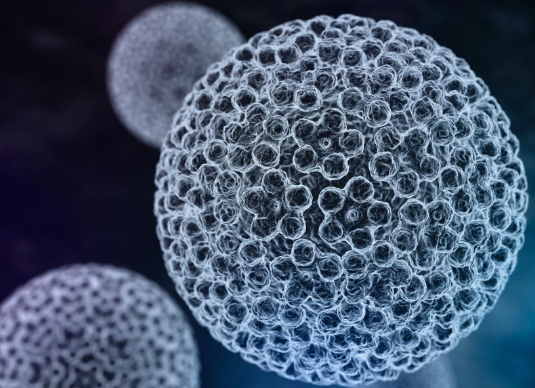


Human Papillomavirus (HPV)
Human papillomavirus (HPV) is a group of viruses that are very common worldwide. Most individuals infected with HPV are asymptomatic and the body is usually able to clear the infection without treatment. The viruses do not cause any problem in most people, but some types can cause genital warts or cancer.
HPV is mainly transmitted through sexual contact, penetrative sex is not required for transmission. Skin-to-skin genital contact is a well-recognized mode of transmission. Most sexually active women and men are infected at some point in their lives and some may be repeatedly infected. HPV infections usually clear up without any intervention, typically within two years. A small proportion of certain HPV infections can persist and progress to cervical cancer.
There are more than 100 different types of HPV, of which two types (16 and 18) cause 70% of cervical cancers and pre-cancerous cervical lesions. The two most important actions you can do to prevent cervical cancer is to get the HPV vaccine and get tested regularly. [1]
Risk factors for Cervical Cancer [2]

First sexual intercourse before the age of 16

Multiple sexual partners

Pregnancy at a young age

Weakened immune system

Women on birth control pills for more than 5 years

Habitual smoking
Symptoms [3]
Early stages of cervical cancer often have no obvious signs or symptoms. When you experience any discomfort or suspicion of cervical cancer, consult a doctor for evaluation, diagnosis and treatment.
| Stages of Cervical Cancer | Symptoms |
|---|---|
| Early Stage |
|
| Mid Stage |
|
| Late Stage |
|





No content on this website should be construed as medical advice or recommendation of any kind. Consumers should always consult their physicians/healthcare professionals for medical advice.
[1] Centre for Health Protection. About human papillomavirus (HPV) vaccination [Internet]. Centre for Health Protection. 2020. Available from: https://www.chp.gov.hk/en/features/102146.html
[2] Department of Health. Cervical Screening Programme [Internet]. Department of Health. 2021. Available from: https://www.chp.gov.hk/files/pdf/3_booklet_english.pdf
[3] Centre for Health Protection. Recommendations on Prevention and Screening for Cervical Cancer For Health Professionals [Internet]. 2021. Centre for Health Protection. Available from: https://www.chp.gov.hk/files/pdf/cervical_cancer_professional_hp.pdf